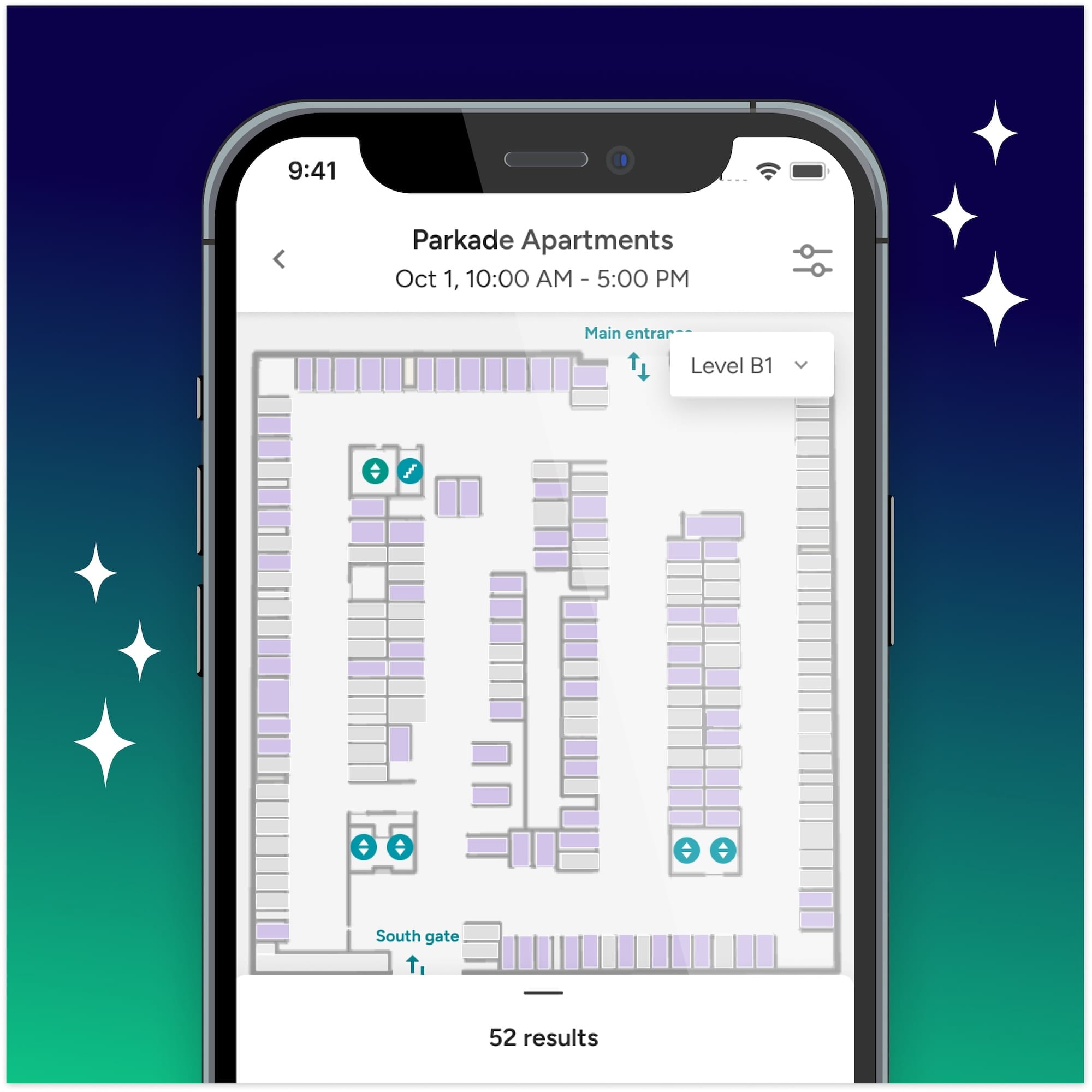-min.jpg)
-min.jpg)
TABLE OF CONTENTS
Residents love free amenities, right?
While that may be true, when it comes to parking, “free” can lead to a number of problems for your apartment community. While some property managers may fear the backlash from residents if they start charging for parking, especially when their existing systems are already messy and inconvenient, charging for parking may even be the solution to their problem, not an accelerant like they may think.
In fact, a recent study found that 42% of respondents would actually be receptive to unbundling parking from rent and assigning a separate fee. So it's not just property managers and owners who want to ditch free parking, many residents are calling for it, too.
Here’s where free parking goes wrong, and how it may be making your job as a property manager more difficult than it needs to be.
In reality, free parking isn’t really free. It can actually be quite expensive.
The costs associated with maintaining parking facilities — like upkeep, security, and management — are steep. When parking is provided at no direct cost to tenants, these expenses are typically absorbed into the overall rent price.
These hidden costs mean that residents without cars are effectively subsidizing a service that they don’t use. This contributes to a decrease in affordability across the board, making affordable housing less accessible to those who rely on public transportation, biking, or walking. And leading to a lot of frustration, too.
To illustrate how real of an impact this makes on rent, research found that when garage parking was bundled with the cost of rent, on average, it led to a $1,700 increase per year.
“The cost of bundled garage parking for renters is approximately $1,700 per year, and the bundling of a garage space adds about 17% to a unit’s rent.”
– C.J. Gabbe, Santa Clara University
Charging for parking makes these costs explicit and makes sure that only those who use the parking facilities shoulder the costs. This approach can lead to lower overall housing costs for tenants who do not require parking.
A more affordable base rent — with optional parking — can also help drive occupancy. It can attract tenants with more diverse priorities, such as those who use public transport, favor biking or walkability, or value savings over owning a vehicle.
“In the absence of paying for an unused parking space, these rent outlays could be applied to renting a larger or better-located unit, other consumer spending, or saving for a home purchase.”
– C.J. Gabbe
It’s clear why some renters may not be crazy about free parking when they see the impact of the hidden costs, but there’s also a negative impact on your property’s bottom line.
Charging for parking creates a substantial additional income stream that can support parking maintenance as well as other upgrades and new additions to the property overall. We see properties earn anywhere from a couple of thousand dollars to tens of thousands of dollars every month from parking alone.
When parking is bundled with rent, the associated costs are hidden, but unbundling these costs makes them explicit and manageable.
Kri, a property manager at Tailor Lofts in downtown Los Angeles, mentioned an unexpected bonus of unbundling parking and charging in a separate system. Even when tenants couldn’t pay rent, they still paid for parking:
“We used to have the parking grouped in with the rent, so if rent didn’t get paid, we didn’t get anything. But now people always make sure to at least pay for their parking, because they don’t want to lose their spot.”
You can also use more flexible pricing models that take into account the length of the parking lease, location of the spot, parking amenities (like EV chargers or covered), availability, and demand. This flexibility helps you optimize revenue, which almost always more than makes up for the decrease in rent price.
So it’s a win-win. People are drawn in by the lower base price for rent, and you bring in more money every month by unlocking an additional revenue stream.
Kurt Nordback, a property owner that we spoke to, pointed out that there's another valuable resource that free parking deprives you of: Data.
"Parking has a real cost, and bundling it and hiding the cost results in various kinds of market inefficiencies and negative externalities."
When you separate out your parking revenue from the rest of your revenue, it helps you make sure that costs and being properly offset by profit, giving you more ammo for strategic decisions.
One of the primary operational issues associated with free parking is inefficient space utilization.
Most often, we see properties face parking shortages when they offer free parking. Few people are going to turn down a free amenity, so you’re likely to see many more people using a spot they may not truly need, such as letting friends park, parking an inoperable car, or even just storing a car they never use. Especially when you’re tight on parking spaces, free parking can be a nail in the coffin.
The team at La Galleria experienced this phenomenon from providing “free” parking that was bundled into rent.
“Parking was a nightmare. We allocated one free parking spot to each unit, but that left us with problems when guests, staff members, and residents with multiple cars had nowhere to park,” Mariana Salfiti, La Galleria’s general manager told us.
When residents can park for free, you’re also more likely to see underutilized or mismanaged parking areas, with some spaces remaining empty while others are overcrowded. Essentially your “free” parking turns into a chaotic free-for-all. This is likely to lead to disputes among residents, complaints to your staff, and disproportional wear and tear. When you assign a fee to parking, and especially when you use a more dynamic pricing strategy, it helps incentivize people to grab up some of the less desirable spots for a lower price.
Free parking also raises administrative burdens. Managing a large number of parking spaces without a fee structure requires more administrative oversight. Property managers have to track and monitor parking usage, enforce parking regulations, and resolve tenant disputes over parking. This increased administrative workload can divert attention and resources away from other essential property management tasks, reducing overall efficiency of your team.
For property management companies that hold sustainability and social impact as core to their brand values, free parking can cause some dissonance.
When you offer parking for free, it encourages more car dependence and makes it easier for residents to say no to other more sustainable transportation options, like walking, biking, or bussing.
This has an environmental impact as it contributes to more fossil fuels, but it also has an impact on community dynamics. Although your property may just be one in a neighborhood of many others, if every property encourages more car usage, it has a cumulative effect on neighborhood walkability as well as social interactions between those in the community.
While paid parking may seem like a favor to your residents and a shortcut to making parking “simple” for your staff, it often does more harm than good.
By assigning a fee to parking, based on current demand and fair market values in your area, more often than not, everyone wins. Your residents with cars get the parking that matches what they care about most (whether it’s budget, convenience, or amenities), your residents without cars no longer have to subsidize amenities they won’t use, and your property team benefits from a more profitable and smoothly-operating parking system.
Interested in taking the next step in parking management? See how Parkade can help put your parking operations on auto-pilot.
.jpg)
As parking management becomes increasingly digital, security becomes critical — and we’re excited to share that we've achieved a major security milestone.
Read Story
We’re thrilled to announce one of our most significant leaps forward this year: the launch of dynamic maps across our mobile and web applications.
Read Story
Now that AB 1317 is official, it’s time to brush up on the requirements and see how your properties stand to benefit.
Read Story